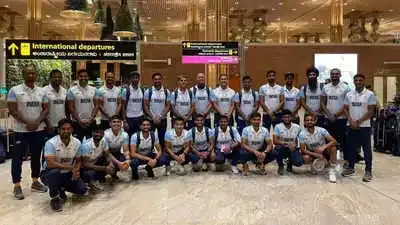 |
According to an official, the National Investigation Agency (NIA) apprehended two persons on Saturday in connection with a transnational plan by the leadership of terror organisations located in Myanmar and Bangladesh to wage war against India by using the existing ethnic turmoil in Manipur.
Manipur has been split apart by ethnic strife, in which many people have been relocated and more have died. The violence began in May of this year after the Manipur High Court suggested to the CM N Biren Singh-led Manipur administration that the dominant Meitei group be included to the Scheduled Tribe (ST) list.
Seiminlun Gangte was the case's second arrest in the last nine days. The case was launched on its own initiative on July 19, according to a representative for the federal anti-terror agency, PTI.
The culprit, according to the officer, has been taken to Delhi and will appear before the jurisdictional court.
Gangte was apprehended at Churachandpur by the Manipur Police and turned over to the NIA.
"Investigation into the case found that militant organisations located in Myanmar and Bangladesh conspired with a segment of militant leaders in India to engage in acts of violence with the purpose of driving a wedge between various ethnic groups and waging war against the Government of India."
"For this purpose, the aforementioned leadership has been providing funds to procure arms, ammunition, and other types of terrorist hardware that are being sourced both across the border and from other terrorist outfits active in the northeastern states in order to stoke the current ethnic strife in Manipur," the spokesperson said.
In connection with the case, the NIA detained Moirangthem Anand Singh from Manipur on September 22.
An inquiry into the situation is still ongoing.
Meanwhile, the BJP's Manipur unit has informed national president JP Nadda that the state administration has failed to curb ethnic conflict.
According to a letter signed by the party's state unit president Sharda Devi, vice-president Ch Chidananda Singh, and six others, "public fury and protest is now steadily reversing the tide, putting the sole onus of this extended disruption on the government's inability to deal with the issue."
Source: Livemint









 StoryMAG is an amazing news site that covers all of the world news, tips, tech news etc.
StoryMAG is an amazing news site that covers all of the world news, tips, tech news etc.